Vomit or. To hand over, Nausea and Break are terms for surge-like emptying processes of the stomach or esophagus against the normal direction. Vomiting is usually associated with a burning sensation in the esophagus (heartburn) caused by stomach acid.
What is vomiting?

Vomiting is the process of emptying the stomach or esophagus through the mouth. The partially digested food is transported out of the body against the natural direction. Sometimes it can also come out through the nose.
In addition to the food, there is also stomach acid in the vomit, which can cause a burning sensation. Vomiting is usually the symptom of higher-level illnesses or triggers. Vomiting is controlled by a complex reflex mechanism from the vomiting center of the brain stem.
causes
The causes of vomiting or nausea are mostly drugs, alcohol and external stimuli such as disgust and physical stimuli (e.g. sticking fingers in the throat), diseases of the brain, diseases of the digestive organs, psychological disorders, vomiting during pregnancy and vomiting after anesthesia.
Vomiting does not have a single cause, but can be initiated by a variety of triggers. One of them are external influences. Visual stimuli that trigger disgust can lead to vomiting, but also in the case of a balance disorder - for example, due to a boat trip. Diseases of the brain are closely related to this complex of causes. If the vomiting center is disturbed, for example due to excessive intracranial pressure, this causes the body to vomit.
The most common cause, however, are digestive tract disorders. In the case of food poisoning, the ingestion of harmful substances such as alcohol in large quantities or an infection with bacteria and viruses, vomiting often occurs. At the same time, vomiting can be a symptom of more serious illnesses, such as changes in blood sugar levels or uremia.
Another complex of causes is mental disorders. The best-known psychological reasons for vomiting are eating disorders such as anorexia or bulimia. Vomiting is used specifically as a method to become slim and lose weight beyond the healthy level. Vomiting can also occur due to other psychological problems - dissociative disorders are an example of this.
Vomiting occurs in the first few weeks of pregnancy. The severity of the symptom differs from woman to woman. Some do not feel any of this, while others can only eat at certain times of the day without vomiting. Vomiting can also occur during the normal female cycle.
You can find your medication here
➔ Medicines against vomiting and nauseaDiseases with this symptom
- Food poisoning
- Fish poisoning
- abdominal influenza
- anorexia
- bulimia
- flu
- typhus
- Mushroom poisoning
- Sunstroke
- cholera
- Alcohol intoxication
- Stomach cancer
- Gallbladder inflammation
- Duodenal ulcer
- Salmonella poisoning
- Inflammation of the pancreas
- Intestinal obstruction
- Intestinal inflammation
Complications
Vomiting is usually very uncomfortable, but normally it does not pose a serious health risk. With a weakened immune system or chronic vomiting, various complications can still arise that require urgent treatment.
Vomiting can lead to a loss of fluid (dehydration) and electrolytes such as potassium and sodium. Slight dehydration is usually not a problem. In the worst case scenario, progressive dehydration can be fatal as the body lacks fluids and salts to a large extent. Babies and small children in particular belong to the risk groups, as they have fewer natural reserves. Older people are also more likely to suffer from dehydration than younger people. In addition, the electrolyte balance shifts when vomiting occurs. If it is more pronounced, the pH value in the blood can change and lead to nerve damage and cardiac arrhythmias.
In addition, vomiting can irritate the esophagus and cause a tear in the lower part of the esophagus. The stomach can rupture and the stomach contents can be inhaled. The acidic stomach contents can also damage the teeth. Chronic vomiting can cause malnutrition.
If vomiting is treated with medication, the active substances may not be absorbed through the stomach or intestines. The active ingredients should therefore be better served in a different way, e.g. administered intravenously.
When should you go to the doctor?
Everyone knows vomiting from their own experience. The cause of their nausea is often known even to laypeople. Sometimes they couldn't stand a meal, other times it was due to test anxiety and some cannot tolerate driving. Vomiting in pregnancy is also known. Fortunately, the causes of vomiting are often harmless, and if the cause is known, it would be an exaggeration to see a doctor about it every time.
However, if vomiting occurs more frequently or over a longer period of time and there is no apparent reason for it, a visit to a doctor is urgently recommended. Vomiting can be a symptom of various diseases that require treatment. In addition, there is the risk of fluid loss in the body due to severe or frequent vomiting, in which valuable electrolytes and other substances important to the body are also lost.
Vomiting associated impairments such as pain, fever or even impaired consciousness are almost an alarm signal. It may even be necessary to call the emergency doctor right away.
The condition of the vomit is also of great importance. Breaking coffee grounds is a sign of blood altered by stomach acid. The cause of this is a damaged stomach skin or stomach wall or a duodenal ulcer. Here, too, a normal family doctor appointment is no longer sufficient; the emergency doctor must be called. This type of vomiting can be associated with major blood loss and can be life-threatening.
Doctors & therapists in your area
Treatment & Therapy
If you vomit for several days, you should consult a doctor. Treatment for vomiting should be based on the cause of the medication.
Depending on the cause, vomiting must be treated differently. First, a distinction must be made whether the cause is psychological or physical. It also depends on the specific cause and severity of the disease. In the case of mental illness, it is not the vomiting itself that needs to be treated, but the underlying illness. Different types of psychotherapy are required depending on the nature of the cause.
Harmless vomiting, for example with travel sickness, can be treated with simple means. These are usually freely available and affect the brain's vomiting center. In this way, they relieve the nausea early on.
However, if there is an illness, action must be taken against it. In the case of bacteria and viruses, the administration of antibiotics or appropriate preparations is usually sufficient to stop the vomiting. If it does not subside after that or if there is another cause, further examinations should be initiated as a serious illness may be present.
Outlook & forecast
Vomiting usually occurs when there is something in the stomach that could harm the stomach. Therefore, the body tries to remove these foods from the stomach by vomiting. In this case, vomiting should be performed by the patient as it is usually necessary for healing to proceed.
Only in very few cases does the patient need to consult a doctor if they vomit. Vomiting usually stops on its own when the stomach calms down or when the stomach stops feeding. Since vomiting is an automatic protective reflex of the body, vomiting should not be prevented.
Without special treatment, vomiting usually stops after a few minutes, but in rare cases it can last for a few hours and occur again and again. It mainly occurs with food poisoning or alcohol poisoning.
If vomiting does not stop even after hours or if it occurs suddenly without consuming any food, a doctor should be consulted to be on the safe side.
You can find your medication here
➔ Medicines against vomiting and nauseaprevention
Effective prevention of vomiting can only be achieved in a few cases. You have no control over bacterial or viral infections or mental illnesses - but you can over other causes. If you vomit during pregnancy or before the period, you should consult your doctor and ask for a preventive drug. A similar approach should be taken with travel sickness and seasickness. Anti-vomiting agents can be obtained beforehand and taken early.
You can do that yourself
In most cases, vomiting can be treated with home remedies and does not necessarily need to be examined by a doctor. It is important to find out the reason for vomiting, as the reasons can be very diverse. Usually it is a protective reaction of the body. It is advisable to allow vomiting as far as the body demands. Those who hold back vomiting slow healing. Often the person concerned feels much better and relieved after vomiting.
Bed rest and a relaxed atmosphere generally help against the symptom. You should only eat light foods and drink a lot. Water, juices and soothing teas are ideal here. The food should be easily digestible for the stomach and contain many minerals and vitamins, as these are removed from the body when vomiting.
In order to counteract vomiting quickly, drugs can also be obtained from the pharmacy. These calm the stomach and stop the reflex that causes vomiting. If the vomiting does not stop or if it is associated with severe other pain, the family doctor should be consulted. This also applies if blood comes out of the mouth when vomiting.


.jpg)

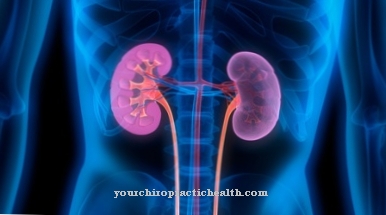
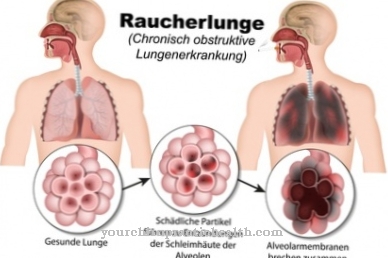






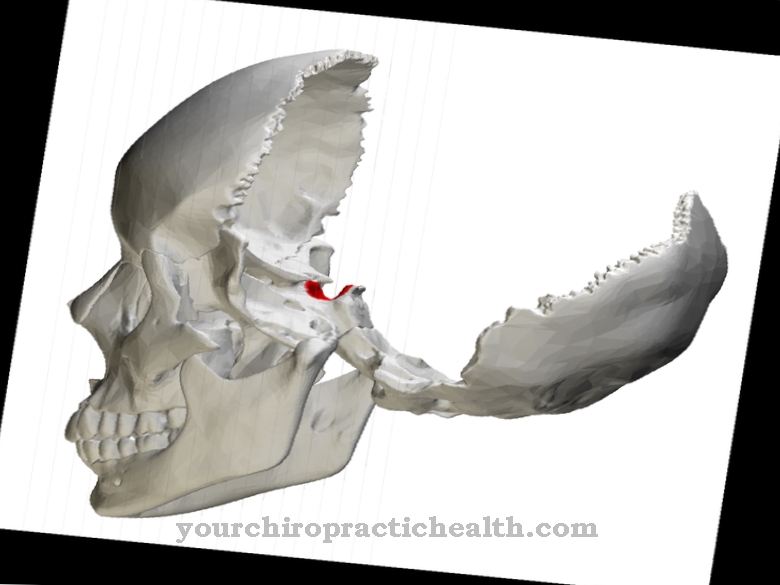
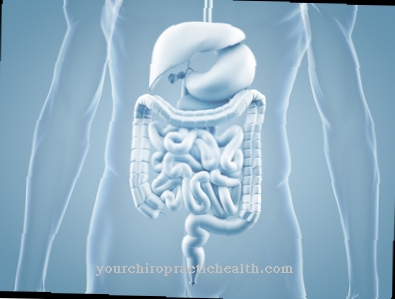


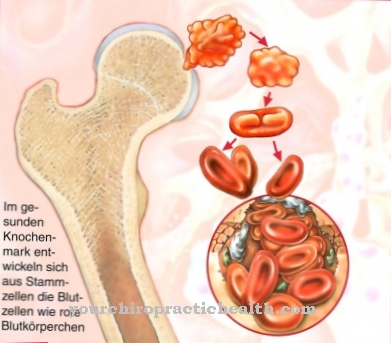








.jpg)

.jpg)
